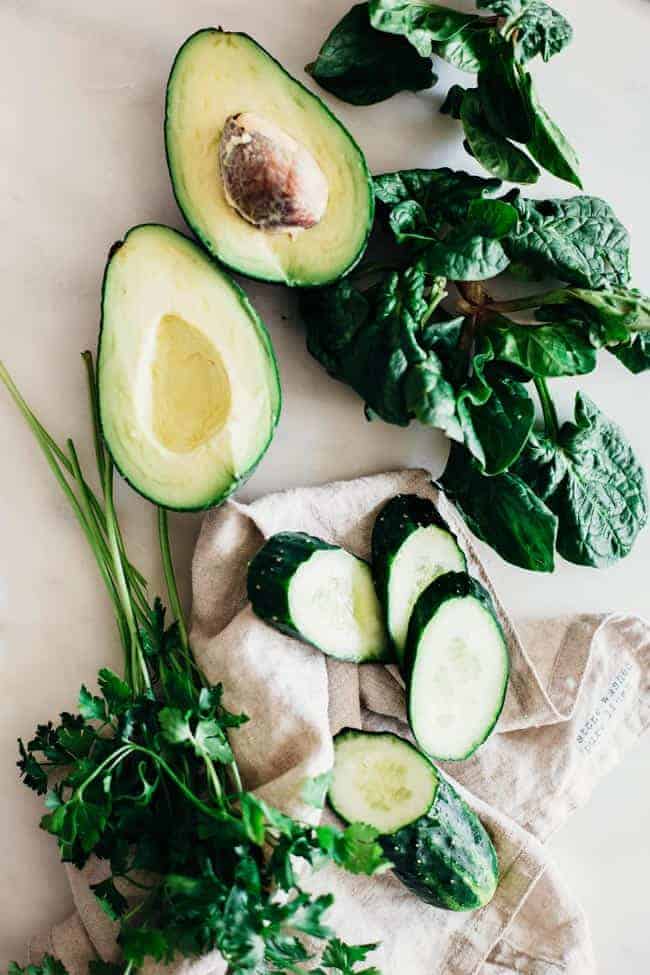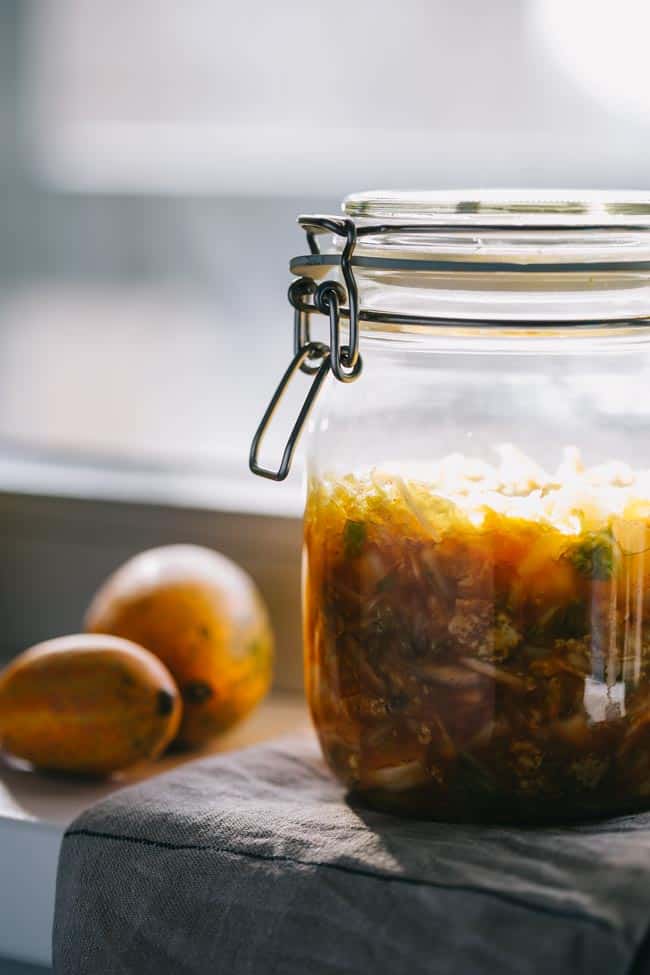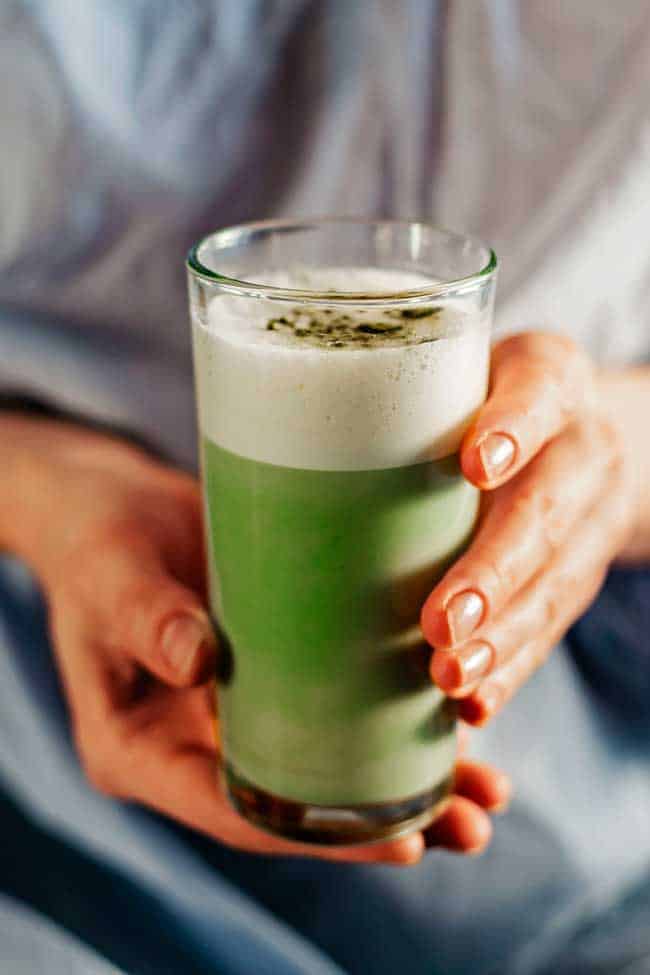Let’s talk about hormones. Those über-important chemical messengers affect many aspects of our health and we wouldn’t be able to live without them. When our hormones are regulated, we feel great–stable mood, lots of natural energy, healthy weight, good sex drive and beautiful skin and hair. But when they get out of balance, it can cause major health issues.
Common signs of hormone imbalance:
- Fatigue
- Weight gain
- Hair loss or thinning
- Brain fog
- Depression
- Anxiety
- Insomnia
- Dry or sagging skin
- Sugar cravings
- PMS
- Low libido
- Fertility challenges
Many women typically turn to synthetic treatments like hormonal birth control (pill, IUD, etc.) and hormone replacement therapy (HRT) to regulate their hormone imbalances. Unfortunately these drugs act more like band-aids covering up the symptoms without treating the underlying cause of the imbalance.
The good news is that there are many ways to balance your hormones naturally with diet and lifestyle modifications. In my practice, when clients come in with symptoms of hormone imbalance, I seek to find the root cause by digging deeper into four major areas of their health:
- Gut health – the gut plays a significant role in hormone regulation
- Stability of blood sugar levels – well-managed blood sugar is crucial for balanced hormones
- Liver health – liver detoxification pathways eliminate metabolized hormones
- Lifestyle factors – chronic stress, quality of sleep and toxic load have negative impacts on your hormonal balance
Natural Ways to Balance Your Hormones
Here are the top 10 ways to address these root causes and balance your hormones using food as medicine.
1. Go organic

Many of the pesticides, fertilizers and growth hormones used in conventional foods are endocrine disruptors, which are chemicals that interfere with your endocrine (hormone) systems. For example, pesticides add synthetic hormones to your body (like xenoestrogens), confuse your body’s complex hormonal conversation and congest your liver, making it harder to process and eliminate excess hormones.
Organic food is more nutrient-dense and helps put out the fire of inflammation that may contribute to hormonal imbalance in the first place. If going 100% organic isn’t in your budget, prioritize the foods that really make an impact–namely, animal products (meat and dairy) and the Dirty Dozen list of produce. I know it can be more expensive, but think of buying organic food as an investment in your long-term health.
2. Eat at least 2 servings of brassica veggies a day
The liver is the key elimination organ of metabolized hormones, so it needs to work efficiently to make space for new hormones and prevent recycling of old ones. All of the brassica family of vegetables (broccoli, cauliflower, collards, kale, cabbage, Brussels sprouts, bok choy, turnips) contain indole-3 carbinol, which is a powerful hormone balancer. This compound helps break down estrogen and aids in detoxification.
3. Eat beets and green apples

A key function of the liver in hormonal balance is the production of bile. Bile is secreted by the liver for the digestion and absorption of dietary fats and fat-soluble substances–some good (vitamins A, D, E, K) and some bad (excess estrogens). You can think of bile as a Pac-Man gobbling up fat-soluble toxins and escorting them to the intestines to be processed and eventually to the toilet to be eliminated. If your bile isn’t flowing, you may have difficulty eliminating excess estrogens.
Two of my favorite foods for decongesting bile are beets and green apples. Make an easy beet and apple slaw by grating a beet and an apple, combining them in a bowl and adding a squeeze of fresh lemon. Eat a serving with lunch or dinner.
4. Eat coconut oil and avocados
Fats are the building blocks of hormones, so it’s essential that you get enough healthy fats in your diet. Coconut oil and avocados are great building blocks, as are extra-virgin olive oil, grass-fed ghee (clarified butter), nuts, pastured eggs and omega-3-rich, wild-caught fish.
5. Eat fermented veggies

What do you know about the estrobolome in your gut? It’s essentially responsible for breaking down estrogens. Supporting gut bacteria is important for ushering metabolized hormones out of the body. You want to make sure you’re promoting proliferation of good bacteria by eating fermented foods. Add 1-2 tablespoons of fermented foods like sauerkraut or kimchi to your plate every day.
6. Include protein, fat and fiber at every meal
It’s virtually impossible to heal your hormones without addressing blood sugar imbalances. Start by making sure you’re eating 3 well-balanced meals a day that include some form of quality protein (animal protein, beans), healthy fat (avocado, coconut oil, nuts, etc.) and lots of fiber from vegetables.
7. Ditch gluten, dairy and sugar
This one is tough, but important because these three foods are essentially an inflammatory trifecta. Gluten and dairy are two of the most common food allergies and sensitivities. In my experience, women suffering from hormone-related issues heal their imbalances faster if they go gluten- and dairy-free. Inflammation decreases, nutrient absorption improves and elimination and detoxification become more efficient.
Sugar is another inflammatory food to avoid. Sugar materially impacts your blood sugar levels, interferes with hunger hormones, robs your body of important micronutrients, feeds bad gut bacteria and depletes your adrenals. Read labels and don’t buy anything with more than 4 grams (1 teaspoon) of sugar per serving.
8. Limit caffeine

Drinking too much caffeine can increase insulin levels, elevate cortisol levels, increase estrogen levels, deplete micronutrients essential for hormone balance (such a magnesium and B vitamins) and basically wreak havoc on the endocrine system. If you need a little boost, try matcha green tea, which has a bit less caffeine than coffee, or opt for a caffeine-free herbal tea like rooibos chai, tulsi or roasted dandelion. Roasted dandelion tea is a great coffee alternative as it has a similar rich, roasted flavor and liver detox benefits to boot.
9. Minimize alcohol
Drinking alcohol regularly isn’t a good idea if you’re trying to balance your hormones, especially if you are dealing with symptoms related to estrogen dominance. Alcohol puts a burden on the gut and liver and disrupts your blood sugar stability. Most of us aren’t going to cut out alcohol entirely, but you can take steps to offset some of the harmful effects.
Never drink on an empty stomach–eat a meal or snack with protein and healthy fats to slow glucose uptake. Also be sure to take a B vitamin complex before you go out and another the next morning. Your liver needs these vitamins to break down the alcohol. Wake up and have a big glass of warm water with lemon to help flush your system.
10. Avoid oils high in omega-6
Vegetables oils (safflower, sunflower, corn, cottonseed, soybean, canola and peanut) are high in omega-6 fats, which oxidize easily in the body leading to inflammation. These fats are ubiquitous in processed foods and used in most restaurants. Whether we mean to or not, we end up consuming way too many omega-6 fatty acids in relation to inflammation-fighting omega-3 fatty acids.
Avoid omega-6s by eliminating processed foods from your diet and load up on omega-3s by adding in wild caught fish, flaxseed, chia seeds, walnuts and grass-fed animal products.
Original article and pictures take helloglow.co site
Комментариев нет:
Отправить комментарий